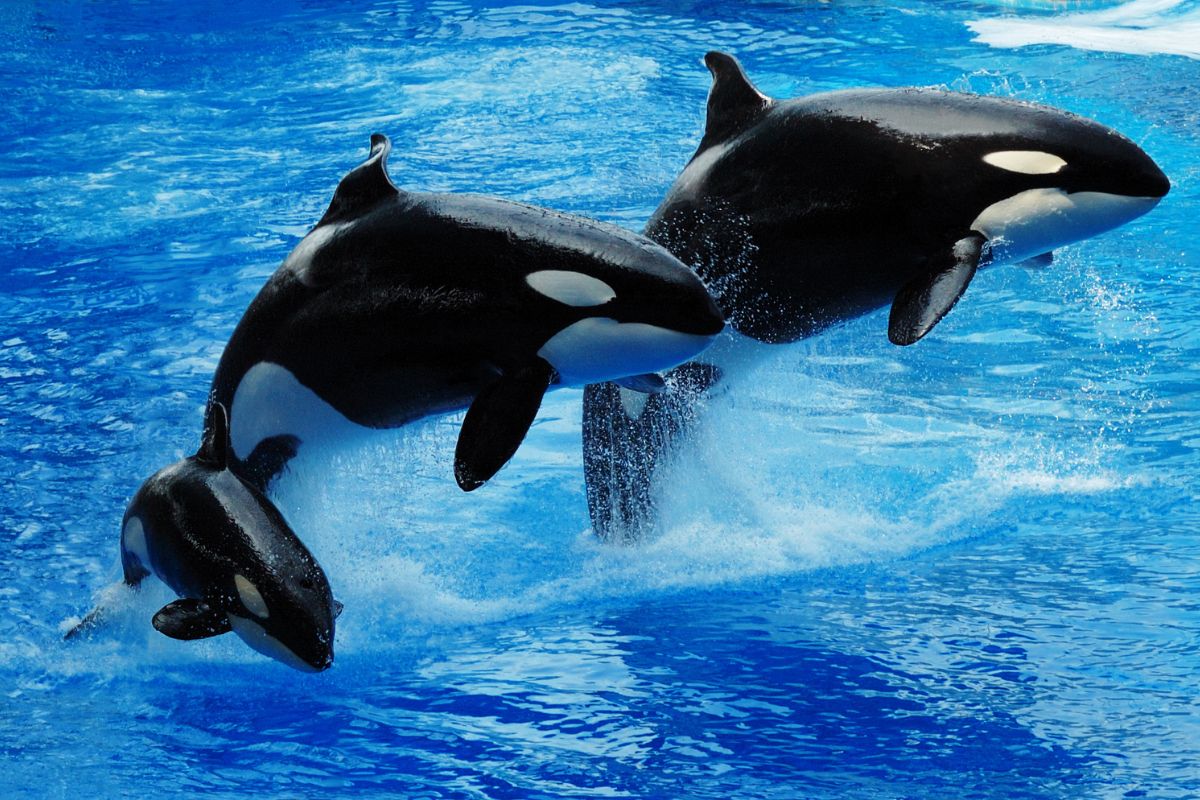Friends of Animals has submitted a legal rulemaking petition to the National Marine Fisheries Service to prohibit the import, export, breeding and public display of captive cetaceans in the United States.
“Our legal petition complements the Strengthening Welfare in Marine Settings Act recently introduced in Congress. However, it would offer more protections if granted—it would prohibit the public display of all captive cetaceans,” explained Andreia Marcuccio, an attorney for Friends of Animals Wildlife Law Program. “The House bill only applies to orcas, beluga whales, false killer whales and pilot whales, not dolphins.
“The abusive conditions and harm that come from keeping cetaceans in captivity for human entertainment made headlines throughout last year, underscoring the need to change the current regulations immediately.”
Marcuccio is referring to Miami Seaquarium coming under fire in November after a U.S. Department of Agriculture report found that many of the facility’s 12 dolphins were underweight, underfed and losing muscle mass. The USDA links this “food deprivation” to the increase in violent and aggressive behaviors observed in the Seaquarium’s dolphins.
Last September, the Mirage Hotel and Casino in Las Vegas temporarily closed its dolphin habitat after three dolphins died prematurely within six months. Shortly thereafter management announced it would permanently shutter Siegfried and Roy’s Secret Garden and Dolphin Habitat. According to casino management, all the animals—dolphins, white tigers, white lions, and leopards—will be placed in the care of “well-trained, highly respected animal care professionals and veterinary experts.”
Priscilla Feral, president of Friends of Animals, countered: “We cannot pop a cork in celebration. While closing this one abusive attraction seems to be a step in the right direction, no one knows where the dolphins will be end up and if they will be safe. The only way to truly protect future cetaceans from a life of cruelty is if NMFS affirms FoA’s rulemaking petition to put a complete end to the captive cetacean industry in this country.”
FoA’s legal petition examines the extreme negative impacts that the capture, import, export, display and research of cetaceans imposes on their health, safety and well-being.
One study revealed that dolphins experience a greatly increased mortality rate immediately following capture from the wild and following every transport. For bottlenose dolphins, the risk of dying increases six-fold during the first five days after capture, with a similar mortality spike after each transport between facilities. This indicates that every transport in captivity is as traumatic to a dolphin as a capture from the wild.”
Short-term acute stress resulting from pursuit, confinement and physical handling can manifest in weight loss, lack of appetite, anti-social behavior, reduced calving and reproductive success, hardening of the arteries, stomach ulcers, changes in blood cell counts, increased susceptibility to diseases and even death. Chronic stress can result in self-injurious behavior, impaired reproduction, weight loss, reduced exploratory behavior and immunosuppression.
Captivity robs cetaceans of the dynamic, complex and expansive habitat and relationships they would have in the wild. Cetaceans are often migratory, traveling 35 to 140 miles a day.
Enclosures for captive orcas, for example, are allowed to be only twice the average adult length of the species to comply with the Animal Welfare Act. So, for instance, if an orca was 24 feet long, the tank would only have to be a measly 48 feet long.
“It’s mind blowing that an orca would have to swim the length of the standard enclosure approximately 110 times to travel 5,280 feet—the length of one mile,” Marcuccio said. “Orcas on average travel 40-75 miles a day in the wild, something they simply cannot do in captivity. An orca would have to swim back and forth the length of the enclosure 2,200 times a day to swim 40 miles and it could never swim at the speed or depth it regularly does in the wild.”
There remain more than 500 cetaceans held captive across 33 aquariums, zoos and marine mammal parks in the U.S. and more than 3,000 worldwide. If NMFS denies the legal petition, FoA will consider bringing a lawsuit.
FoA contested the transfer of five belugas from Marineland in Canada to Mystic Aquarium in Connecticut in a court battle in 2021. A judge ruled against FoA, and tragedy soon resulted from their transfer in the dead of night.
“The deaths of two belugas, and the fact that another is in critical condition at Mystic Aquarium in Connecticut, demonstrate that veterinary science is not advanced enough to detect when cetaceans are suffering from fatal diseases that are exacerbated by stress,” Marcuccio said. “Transport is always extremely risky, and the U.S. should not allow the routine practice of transporting these animals to live out their lives in an aquarium.”

